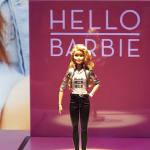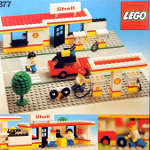
What are the limits to give to connected objects in everyday life? Whilst it is still difficult to answer this question, the toy manufacturer, Mattel, has just defined some characteristics in its sector. Having recently presented its future doll, named Hello Barbie, in Germany, the company finds itself faced with a controversy concerning the connectivity properties of its prototype.
Nicknamed “Stasi Barbie”, in reference to the ex-RDA intelligence services, the doll wanted to keep up with the times and become a connected object in its own right. Thus, it has a microphone and voice recognition system to respond to the children. Nothing dangerous up to there, as this type of system is integrated into many interactive games. However, Mattel has given its doll an artificial intelligence similar to Siri, developed for Apple products. As noted in the article in the German newspaper, Stern, Hello Barbie doesn’t only talk to the children, it records them constantly.
Once the doll recognises a familiar voice, it starts recording and sends the data, via its Wi-fi connection to Mattel’s servers. This data collection is presented by the company as a way for Barbie to better know the child playing with her, to personalise its responses and to constantly evolve. She remembers what has been said and provides appropriate responses. In the video above, the presenter asks the doll what she could do later. Hello Barbie answers:
"Well, you told me you like being on a stage. So, maybe a dancer or a politician. Or what about a dancing politician ? I always say, anything is possible".
But behind this personalisation of the relationship between Barbie and the child, other uses for the constantly collected data are possible. The child’s profile created from the information confided or said to the doll is a gold mine for Mattel. By having Hello Barbies in numerous households, the company would have a database to better know its young clients and create new models inspired by the desires of consumers under 10 years of age. For the moment, no release date has been announced by the American company, if it maintains its production.
*Photo from the video
News in the same category
This is pure genius: Nails Inc. just released a nail varnish in a spray can, making the manicure a fun beauty routine, as simple as a pshtt.
In addition to being located in the heart of the Huis Ten Bosch theme park in Japan, the future Henna-na hotel will have the specificity of employing humanoid robots, whilst room access keys and cards give way to facial recognition.
With Shell planning future oil drilling in Alaska, Greenpeace mobilised more than 6 million people to take toys sold by Lego and branded with the Shell logo off the market. The company announced the termination of its contract with the oil company.
The war between Microsoft and Sony continues in the home consoles market. With sales struggling to catch up those of its competitor, Microsoft has just reduced the price of its Xbox One to £349.99, by offering a version without Kinect.




